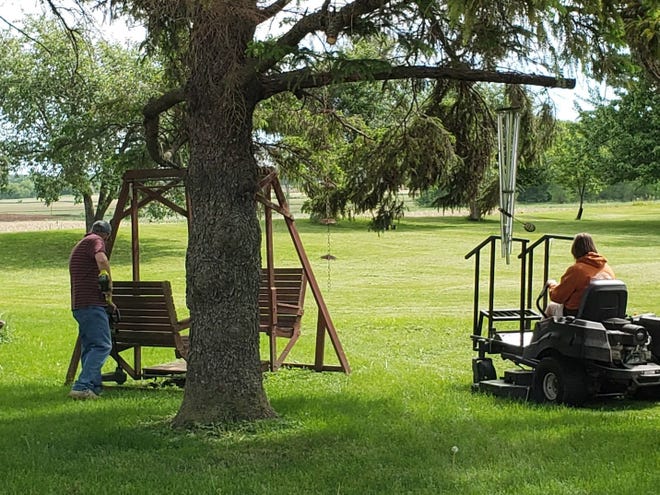Rules of cataract surgery

My second cataract surgery is done. When I took the eyepatch off that evening, I was startled to have double vision. I had been warned that this could happen, but since my first surgery went by without even a hint of double vision, I took it for granted that the second would be the same.
It wasn’t.
Seeing multiple images scared me. What if it didn’t go away?
To be able to lock up my chickens that night, I kept my left eye closed. The right eye did the job of getting me around. Afterward, I sat down and waited.
It took about 2 hours for the double vision to subside. Phew. Now, a day later, I’m still waiting for my fuzzy vision to clear—it takes a while.
I already saw my doctor for my post-op appointment. He said everything looked good. Of course, I was to continue to follow his guidelines for the next few weeks.
I have to put drops in my eyes for a month. Two charts help me keep track of which eye gets which drop—my right eye is a week ahead of my left.
Other instructions include the following: no bending over-keep head above the waist for 1 week, no heavy activities for one week—don’t lift anything larger than a gallon of milk (Car-E is a heavy cat and he will have to find his way up on my lap, which he does), no swimming or hot tubs for two weeks (no problem there), and most importantly, no dusty or dirty environments for two weeks.
Dusty and dirty environments! That put a kibosh on lawn mowing. If I waited for a total of three weeks (including both eye surgeries) my lawn would look like a hayfield.

I’d have to ask for help with the lawn, but I didn’t want to. Like my late husband, Bob, I hate to ask for help. “I can do it myself,” was his motto and now I chant that, too.
I thought about getting on the mower. Maybe if I went slow. Maybe if I wore goggles. Maybe I could do it myself until the gas ran out—lifting the five-gallon container of gas was out of the question.
I remember a spring when rain after rain kept me from mowing. I’d sneak in a few passes around the house, only to be stopped by another shower. With that weather, I was sure I could see the grass growing, getting taller and taller. When the rain stopped, I had something resembling a hayfield in the backyard and behind the barn.
Luckily, this time Rebecca and Andy volunteered to help with the mowing, so no hayfield for me. (My neighbors Dan and Jay also helped, too.)
Rebecca and Andy arrived one weekend morning and set to work.
Rebecca hopped on the zero-turn mower. While still in the shed, I reminded her how it started and ran. My daughter pulled on one lever instead of pushing it forward and almost ran over my toe—not real close, but close enough.
I told her to take it away from the buildings so she could get used to the controls again and not run over anything—Rebecca drives like Bob, FAST.
Andy took up the push mower and weedwhacker. He went around trees and bushes so Rebecca wouldn’t have to worry about getting too close—branches are an obstacle often overlooked when mowing, even Andy got poked while he was walking by an apple tree.

I was supposed to stay away from the action as the grass was flying every which way. But I couldn’t just sit in the house. I had to do something useful.
With my handy-dandy grabber, I went under the basswood tree to pick up the branches that had fallen in a storm. Then, when Rebecca buzzed through she didn’t have to worry about them.
Others offered to help, but accepting their time and energy wasn’t any easier for me.
Thanks everyone for your help, but when the third week passes, I’ll be more than ready to take my seat on that mower and get back to normal.
Susan Manzke, Sunnybook Farm, N8646 Miller Rd, Seymour, WI 54165; sunnybook@aol.com; www.susanmanzke.net/blog.